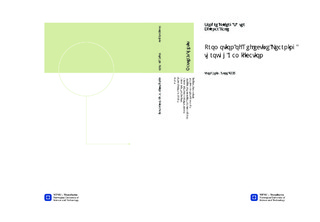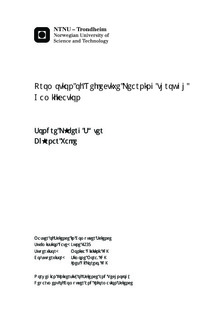| dc.contributor.advisor | Divitini, Monica | nb_NO |
| dc.contributor.advisor | Mora, Simone | nb_NO |
| dc.contributor.advisor | Di Loreto, Ines | nb_NO |
| dc.contributor.author | Sæter, Sondre Løberg | nb_NO |
| dc.contributor.author | Valle, Bjørnar | nb_NO |
| dc.date.accessioned | 2014-12-19T13:40:57Z | |
| dc.date.available | 2014-12-19T13:40:57Z | |
| dc.date.created | 2013-11-12 | nb_NO |
| dc.date.issued | 2013 | nb_NO |
| dc.identifier | 663780 | nb_NO |
| dc.identifier | ntnudaim:9980 | nb_NO |
| dc.identifier.uri | http://hdl.handle.net/11250/253562 | |
| dc.description.abstract | This thesis suggests that the use of game elements may improve the results in processes of reflective learning. The inclusion of game elements in an existing application called ?Timeline? is used as a case study for testing our hypothesis.During the last few years there has been an explosive interest in gamification for a wide range of purposes, from marketing to education. The term gamification may be defined as the use of game elements to motivate people in performing non-game tasks.The effects of gamification have been proven in various environments before, but are not yet widely studied in the field of reflective learning. Reflective learning is the process of looking back on an experience and breaking it down into significant aspects in order to gain a deeper understanding of the factors affecting the outcome, and thereby improving future action. The thesis explores academic literature on gamification and reflective learning, and the possible impact of gamification on reflection is tested in a case study, where we incorporate game elements into an existing application for reflective learning. The new application is then tested on a group of participants who afterwards answer a survey. The results indicate that game elements can effectively motivate users to enjoy performing non-game tasks in reflective learning, specifically the task of data collection. The study also highlights possible side effects of incorporating game elements with competition and scores. Some users exploited the application's weaknesses to achieve higher scores in a way that did not enhance the act of reflection. Our conclusion is that gamification may be a useful tool in the field of reflective learning. It should, however, be used with care as it is more effective on certain tasks and some users may exploit weaknesses to achieve higher scores. | nb_NO |
| dc.language | eng | nb_NO |
| dc.publisher | Institutt for datateknikk og informasjonsvitenskap | nb_NO |
| dc.title | Promotion of Reflective Learning through Gamification | nb_NO |
| dc.type | Master thesis | nb_NO |
| dc.source.pagenumber | 161 | nb_NO |
| dc.contributor.department | Norges teknisk-naturvitenskapelige universitet, Fakultet for informasjonsteknologi, matematikk og elektroteknikk, Institutt for datateknikk og informasjonsvitenskap | nb_NO |

